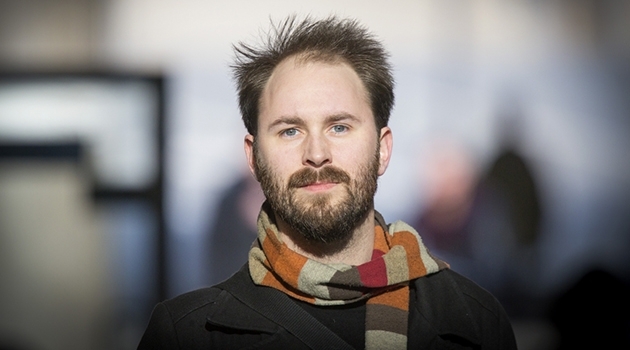Mixed feelings about people begging
In a new thesis in human geography, Erik Hansson analyses Swedish society’s reactions to the presence of begging European citizens. The thesis covers the history and social problems of begging, but also analyses people’s feelings and reactions in their encounters with those who ask for help.
The Swedish “begging debate” has largely revolved around the yes/no question of whether begging should be banned. This has created a paradox. On the one hand, begging – most often by Roma EU citizens from Romania and Bulgaria – is not seen as belonging to Sweden’s welfare society. On the other hand, refusing assistance to needy people conflicts with the principles of solidarity and equality on which the Swedish self-image is partly based.
The research material includes 1,329 media articles (from debate contributions to news reports) published in 2014–16, and also interviews, observations and social media postings. To understand people’s feelings and reactions when they encounter people begging, Hansson uses psychoanalytic theories as applying to society. Debate articles and interviews are analysed and merged with a historical perspective on economics and social policy.
Ambivalence, anxiety and discomfort
In his thesis, Hansson notes that, all through history, people have felt ambivalence, anxiety and discomfort about the presence of and their encounters with people begging. In the world religions and history of political ideologies, there is also marked ambivalence about the act of begging. People feel pity, compassion and solidarity as well as contempt, loathing and anger. Hansson sees two different dimensions – one political and one psychological. The political dimension raises questions about rights and obligations regarding ownership in society.
The psychological dimension is more specifically about the actual encounter with the begging person and the gesture. Put simply, they confront people with a demand of conscience: to decide how to relate to a fellow human being. Faced with other people’s appeals for help, it is easy to feel anxious. As a defence mechanism, to escape this anxiety, the feeling is transformed into sympathy, antipathy or apathy instead.
Mixing emotion and assumed traits
“You get information from the community that can explain the ‘beggar’ as having a personality that fits in with your feeling of sympathy, antipathy or apathy. The antipathy is often about the bad feeling aroused within you, which is transmuted into the view that a ‘bad person’ made you feel bad. So it becomes a mixture of your own emotion and the other person’s assumed characteristics. That would explain the rumours, recurring throughout history, of ‘beggars’ as not really poor, but instead criminal gang members or idle layabouts,” Hansson says.
Present-day situation not unique
The thesis shows that the current situation is not historically unique. The existence of begging is an issue with profound causes that are about not only ethnic discrimination, but also more comprehensive political and economic structures that shape public policy generally.
“The exclusion of foreign Roma in Sweden from getting basic human rights met – in terms of a roof over one’s head, sanitation, education, health and livelihood – is very reminiscent of historical discrimination against Swedish Roma. In the thesis, that ‘historical return’ is discussed in the context of Sweden’s current employment and housing policies. In both these policy areas, there’s a kind of deadlock between the left and right wings as to what rights Swedish citizens, and others, should have in terms of work, livelihood and housing. These deadlocks, in turn, affect the political silence when it comes to debating solutions to help the group in Sweden,” Hansson says.
Publication
The disputation (public defence) of the thesis, ”Det känns fel.” Om det svenska samhällets reaktioner på närvaron av tiggande EU-medborgare, 2014-2016 (“‘It feels wrong’: Swedish society’s reactions to the presence of begging EU citizens, 2014–2016”), will take place on 14 June 2019.
Facts:
Psychoanalysis in human geography
Psychoanalysis is used as social theory when, for example, researchers try to understand phenomena that are about strong expressions of emotion that may seem irrational from an “enlightened” perspective. One reason why more human geographers and social scientists are becoming interested in psychoanalysis is the advance of various phenomena such as nationalism, racism, populism, the “fake news” debate and “climate-change denial”. Social theorists began to make use of certain psychoanalytic theories as early as the 1940s in an attempt to understand the emergence and temptations of Nazism and fascism. The purpose is to try to understand what people crave, and feel anxious and fearful about, in their social interaction with others.
Previously published research in the field
This is the first Swedish social-science thesis to tackle this subject, but there are other studies that touch on the area in various ways. For example, there is an artistic research thesis by Cecilia Parsberg of Lund University on the issue of meeting a beggar emotionally and intellectually. In 2018, political scientist Katarina Zelano of the University of Gothenburg published an interview study on Swedes’ begging, and sociologist Vanessa Barker of Stockholm University has written about the Swedish Government’s treatment of Roma. In a historical study, Tobias Davidsson of the University of Gothenburg has reviewed 19th-century political debate on poverty relief in Sweden.
Linda Koffmar

